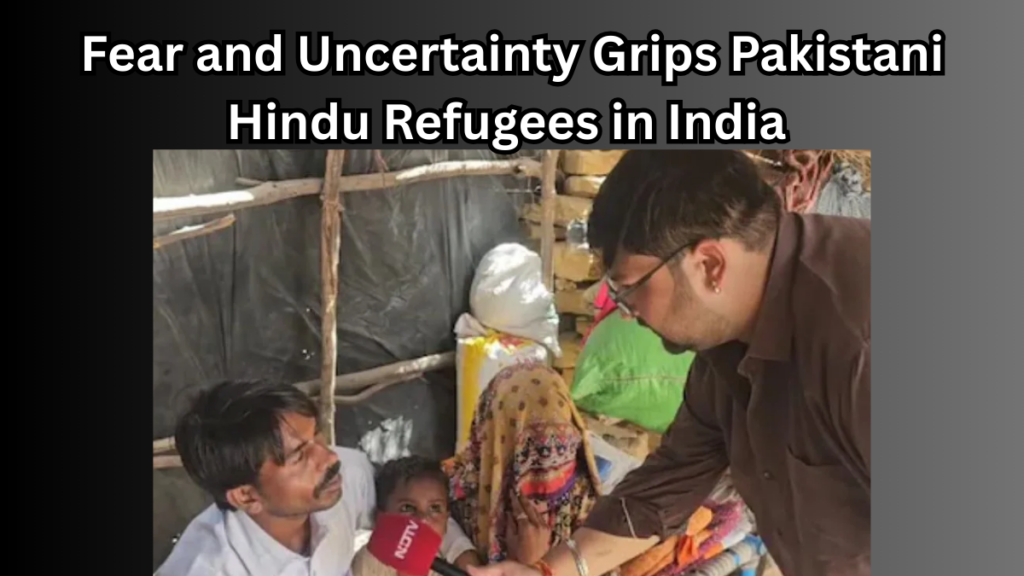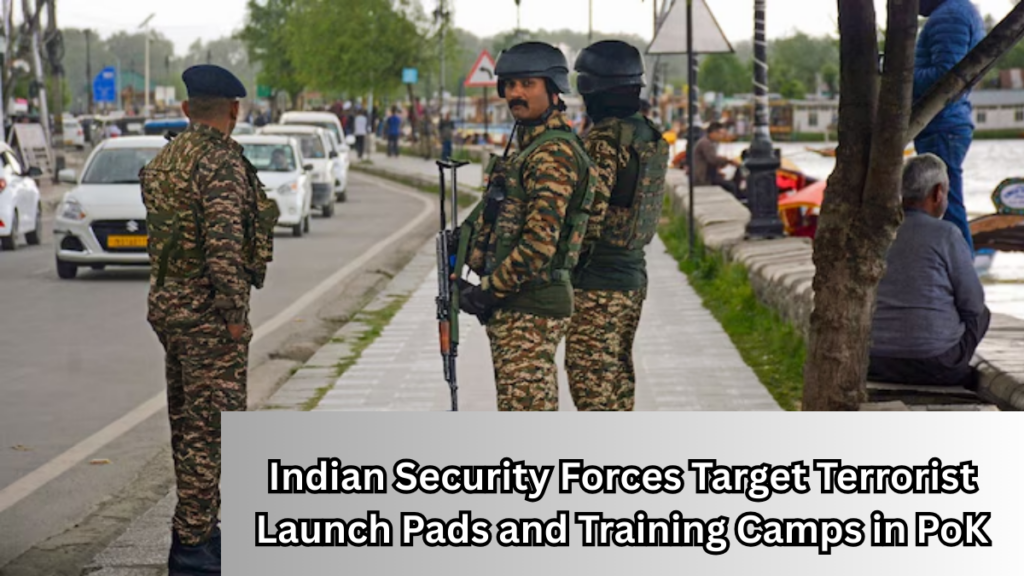As the deadline nears for Pakistani nationals to leave India following the tragic Pahalgam attack, a wave of fear has swept through Hindu refugee communities. Many who once fled religious persecution in Pakistan are now terrified of being forced to return to a life they desperately escaped.

Table of Contents
The Aftermath of the Pahalgam Attack

Earlier this week, terrorists brutally massacred 26 civilians in Jammu and Kashmir, prompting the Indian government to issue a stern directive:
-
Deadline: Sunday
-
Scope: Pakistani nationals currently in India
-
Clarification: Long-term visa holders, especially Hindu refugees, will not be impacted
-
Concern: Short-term visa holders are left vulnerable, with no exemptions provided
For thousands of Pakistani Hindus who entered India on short-term visas, the looming deadline feels like a death sentence.
“We Chose Death Over Returning to Pakistan”
At Eklavya Bhil Basti, a refugee colony in Rajasthan’s Jaisalmer district, the atmosphere is thick with anxiety and heartbreak. Over 1,000 Hindu refugees, mainly from Sindh, live in this settlement after crossing into India through the Wagah-Attari border.
Real Voices, Real Fears
-
Kheto Ram, who fled Sindh with his wife and two sons, shared his emotional turmoil.
“Dying in India is acceptable, but not returning to a hell like Pakistan.”
-
Kheto’s family sold everything they owned to escape continuous harassment in Pakistan. They arrived in India just hours before the Pahalgam attack unfolded, and now live in constant dread.
-
Balam, another refugee, echoed similar feelings.
“Death is better than returning to Pakistan,” he said, while his wife added tearfully, “We left everything we had, please don’t send us back.”
Why Returning to Pakistan Feels Impossible
The refugees’ fears are not unfounded. Life in Pakistan for religious minorities, especially Hindus, has become increasingly unbearable.
According to the US Commission on International Religious Freedom (USCIRF):
Issue |
Description |
|---|---|
Religious Persecution |
Routine discrimination, violence, and social exclusion faced by minorities |
Blasphemy Laws |
Used disproportionately against Hindus, Christians, and other minorities |
Forced Conversions |
Young Hindu girls often forcibly converted to Islam |
Lack of Protection |
Little to no recourse from law enforcement or judicial systems |
The USCIRF report specifically urged the U.S. government to redesignate Pakistan as a “country of particular concern,” highlighting the alarming deterioration of religious freedom.
The Call for Compassion
Hindu refugees, who already endured trauma and loss, are pleading with the Indian government for compassion and permanent refuge. Many have submitted appeals, hoping their cries will reach policymakers before the Sunday deadline.
They are not just seeking a home — they are seeking the right to live without fear, to worship freely, and to give their children a future.
FAQs
1. Will all Pakistani nationals be asked to leave India?
No. The Indian government clarified that long-term visa holders will not be affected. However, short-term visa holders, including many Hindu refugees, may face deportation.
2. Why are Hindu refugees afraid to return to Pakistan?
Hindu minorities in Pakistan face extreme religious persecution, forced conversions, violence, and discrimination, making return life-threatening.
3. What is the Eklavya Bhil Basti in Rajasthan?
It is a refugee settlement in Mulsagar village, Jaisalmer, home to over 1,000 Pakistani Hindu refugees who entered India seeking safety and religious freedom.
4. What action is being taken by international bodies regarding religious persecution in Pakistan?
The USCIRF has urged the U.S. government to redesignate Pakistan as a “country of particular concern” due to the worsening conditions for religious minorities.
Click here to learn more










